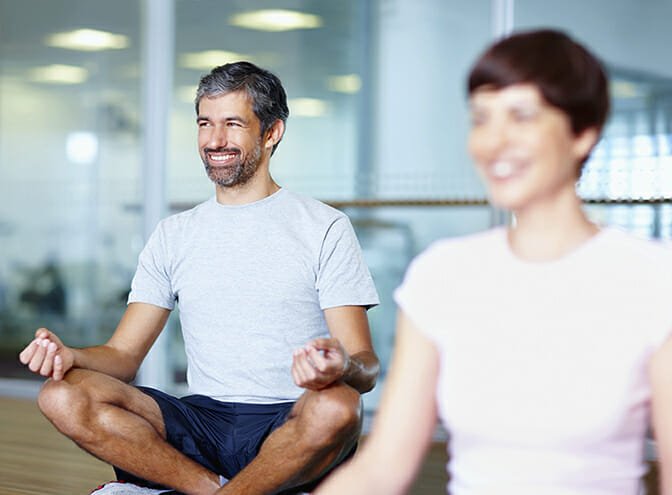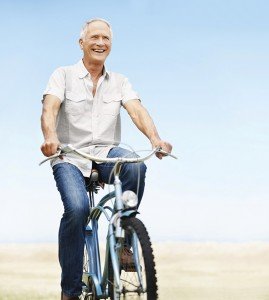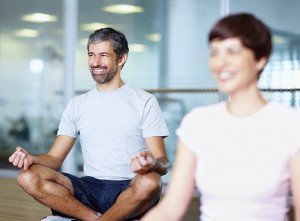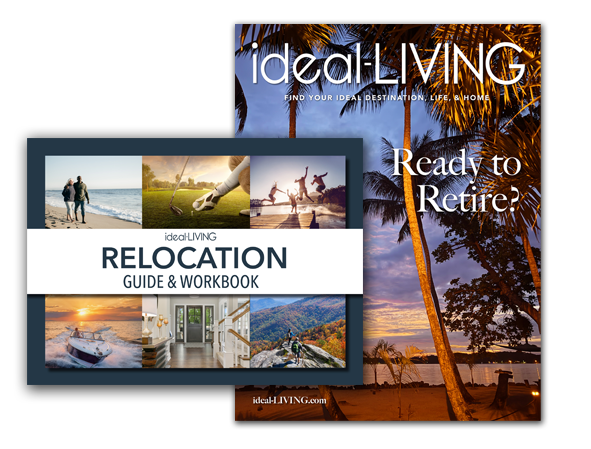
Fit Over Fifty: Tips for Living Better & Healthier
Tips for Living Better and Healthier
 You moan and groan more. Your ankles and knees may crack or pop. And that gift certificate for a free workout with a personal trainer you got for Christmas … well, it’s now June. Face it, staying in shape in midlife through retirement has its challenges. Still, maintaining good overall health is one of the best investments you can make. Don’t let the fear of what to do leave you standing still. Get moving with these tips for a healthier, more active you!
You moan and groan more. Your ankles and knees may crack or pop. And that gift certificate for a free workout with a personal trainer you got for Christmas … well, it’s now June. Face it, staying in shape in midlife through retirement has its challenges. Still, maintaining good overall health is one of the best investments you can make. Don’t let the fear of what to do leave you standing still. Get moving with these tips for a healthier, more active you!
Know Your Numbers
Knowing your blood cholesterol, blood glucose, triglyceride and other blood chemistry levels through a physician-ordered blood chemistry panel can provide
a picture of your overall health and give insight into areas where lifestyle change is needed. The test, which requires a blood sample, is relatively painless and usually performed at one’s annual physical exam.
Hit the Road
A sedentary lifestyle can lead to a variety of maladies and unwanted conditions. Running, cycling and walking are just a few forms of physical activity that encourage good, lifelong health through midlife and beyond. For those with limited mobility, upper and lower body exercises like weighted arm raises and leg extensions help get blood circulating and build endurance.
Say OHM
In response to modern life’s cortisol-raising dilemmas, conflicts and calamities, there’s a wide variety of easy, anxiety-reducing solutions from ancient times that will literally take your breath—and stress—away. From yoga and tai chi to guided meditation and mindful breathing, incorporating exercises that care for the mind and soul will do a body good!
Get Tested
Men age 40 and over have an increased risk for prostate cancer, the second leading cause of cancer death in American men. Prostate cancer screening involves measuring the amount of prostate-specific antigen in the blood. Experts recommend men between ages 40 and 45 should talk to their doctor about screening and create a proactive prostate health plan that is right for them based on th eir lifestyle and family history.
eir lifestyle and family history.
Drink
No, not that kind. While adult beverages may have more appeal, plain water is preferred when it comes to proper hydration over the lifespan. How much water to drink depends on your diet, size and unique body chemistry, say experts, but generally between six and eight glasses a day will do the trick. Bottom’s up!
Pack Your Bags
Travel introduces new places, faces and customs. This, in turn, stimulates the brain. As we age, cognitive function tends to decline and become closed off. New surroundings challenge our mental pathways and keep us open to new possibilities. Paris in the spring isn’t such a bad deal, n’est pas?

Read, Man, Read!
It may not have been your favorite school activity, but studies show that regular reading helps slow memory loss in older adults. Whether it’s a weighty classic or just a magazine, reading engages the brain at multiple levels and helps sharpen mental acuity.
Snooze
A dream health tip for most guys no matter what age, sleep and good sleep hygiene in a world full of texts, beeps, chirps and buzzes is paramount. Experts say older adults need about seven to nine hours of sleep per night. Dark, cool conditions promote good sleep, while sleep disorders like insomnia or sleep apnea should be addressed immediately.
Do It More
Experts say increasing safe sex in old age can increase life expectancy. The penis is a barometer for good health, say the same experts—a weak erection can indicate potential problems with the brain, heart or kidneys. For men with erectile dysfunction, several pharmacologic and non-pharmacologic remedies exist.
 Supplement
Supplement
Taking a daily multivitamin can help improve blood flow and reduce bone loss in men over 50, say experts, in addition to providing essential vitamins and minerals.
By David Frederiksen. Previously published in the 2015 Summer issue.
Receive your complimentary Relocation guide and magazine



